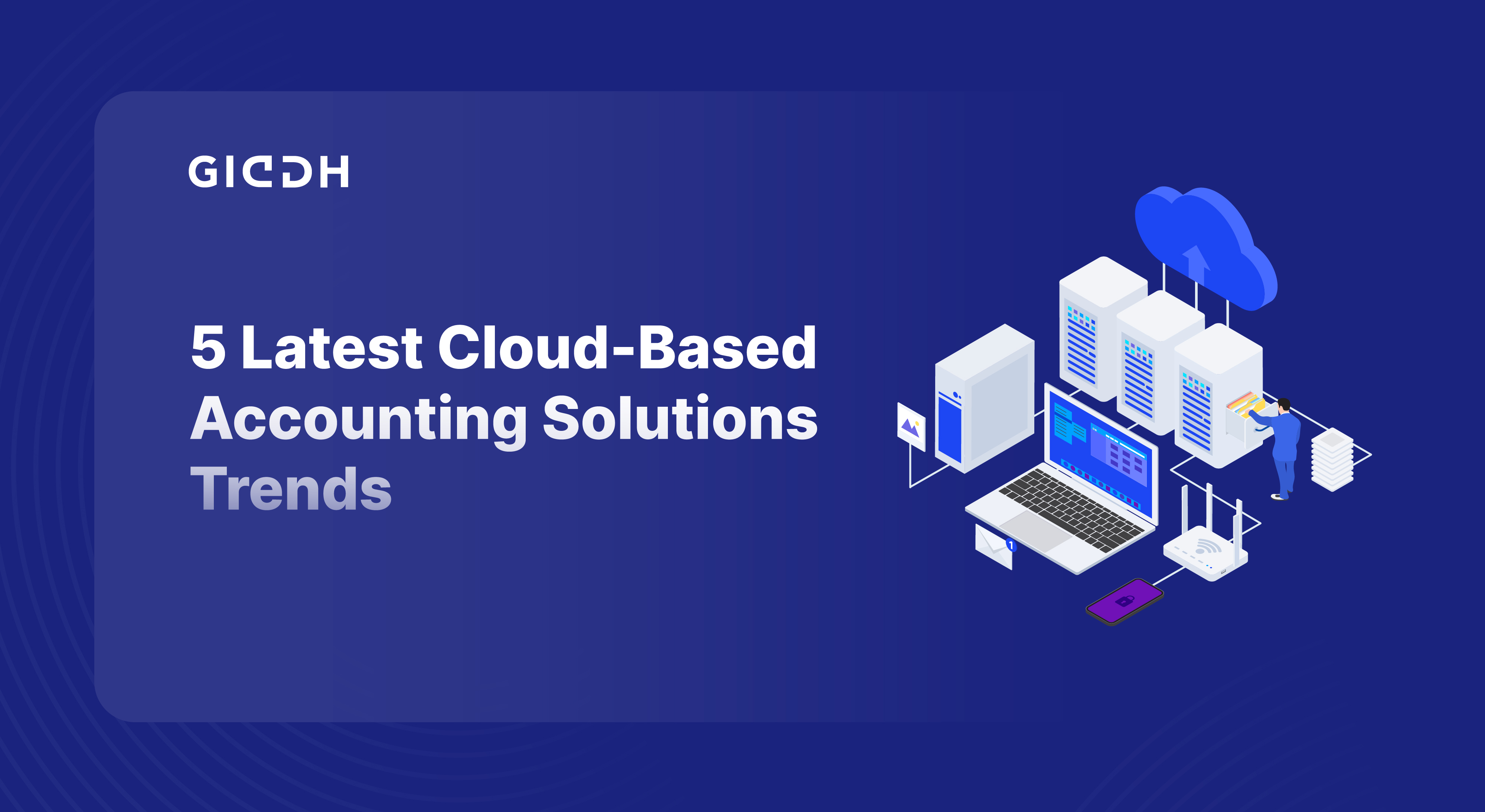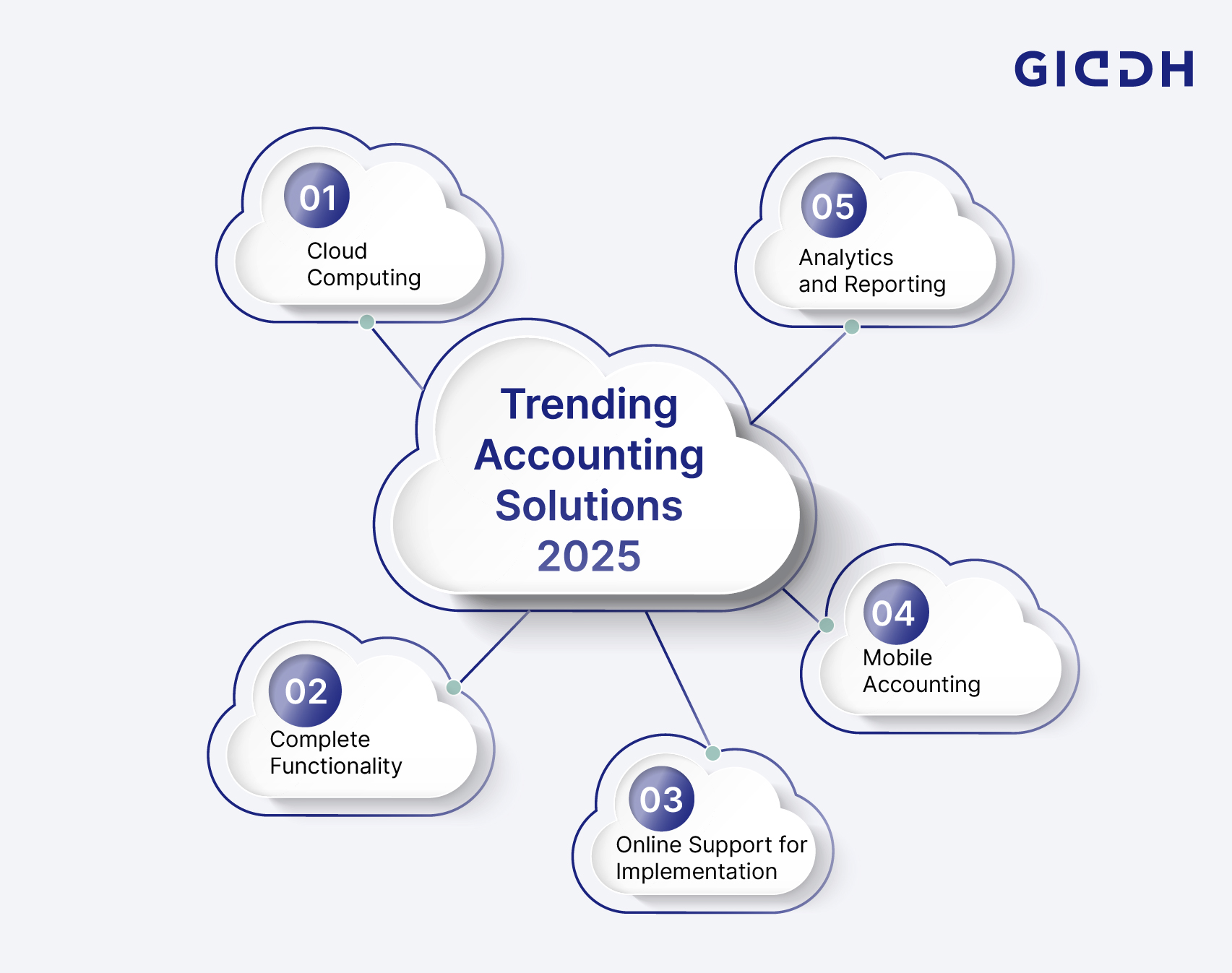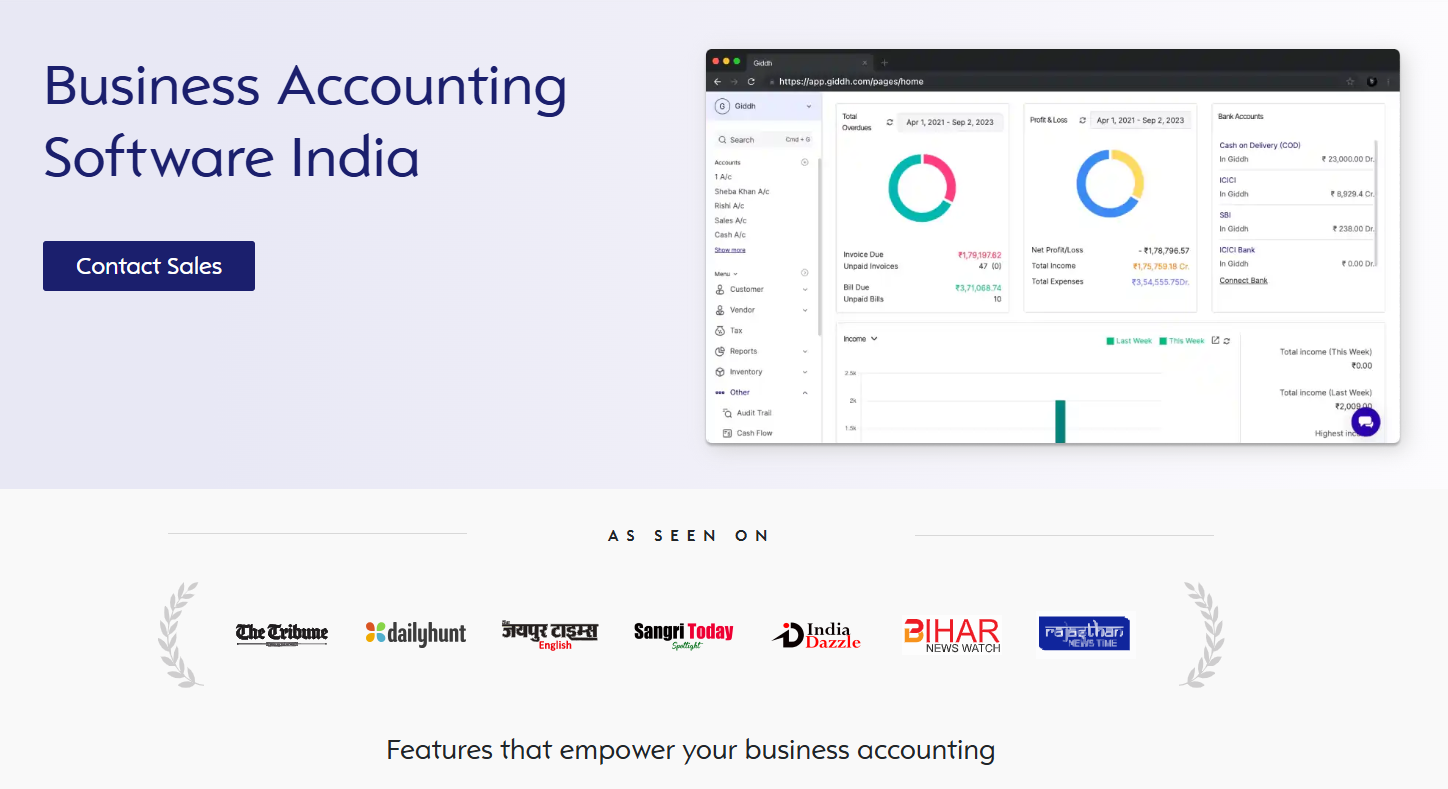Top 5 Trends Revolutionising the Accounting Software

Accounting software is a crucial tool for any business. It helps a business manager run the company with proficiency and profitability. With the advent of cloud computing and automation, bookkeeping has undergone significant changes over the last decade. Occasionally, we witness changes occurring in the global business environment. And thus, staying current with such rapid changes is a tricky proposition.
In present times, innovations and technology have become an essential part of the accounting and bookkeeping industry. The latest cloud-based accounting solutions trend and developments suggest that many tasks can now be accomplished through brief off-site meetings, and with a range of software options, one can achieve better visibility and accountability of business activities.
Recent trends in accounting have surpassed outdated methods of financial management, which were hindered by the lack of real-time data and basic desktop-based software.
A well-run accounting function can lay the foundation for a successful enterprise, and by following the correct strategies and practices, your organisation will always stay one step ahead of the competition.
Latest Cloud-Based Accounting Solutions Trends in 2026

1. Cloud Computing
One cloud-based accounting solutions trend that shows no signs of slowing down is cloud computing technology. According to a study by North Bridge (a venture capital firm), nearly 75% of IT managers and senior executives reported using at least one cloud-based business application.
What is attractive about the cloud, you ask? A cloud approach is a powerful choice for companies seeking to outsource software and hardware support for minimising costs and focusing on core competencies. Web-based options also permit a simple extension of system access to branch offices and remotely active users.
This facility, which provides direct access to systems via a web browser and consistent internet connectivity, is a key benefit, enabling users to access business systems and data from anywhere, at any time.
Lastly, the subscription pricing model is desirable for companies seeking to spread software costs over time and avoid larger upfront investments.
Cloud-based technology is expected to gain stronger momentum in accounting trends in the current scenario, impacting various areas of business now and in the future. With the advantages of shared resources, server-run accounting software models, and easily accessible financial information through the cloud, accounting processes will be more efficient.
2. Complete Functionality
A study of modern accounting software reveals that it typically includes many applications and modules that go beyond the conventional definition of accounting software.’ The current accounting software is likely to include functionalities that support manufacturing, inventory management, sales, and other business domains.
Single systems also provide a consistent data set, such that changes in one system are reflected in other systems in real-time. Apart from reducing repetition of work, a single data record can help enhance transparency and eliminate bottlenecks across multiple departments.
3. Online Support for Implementation
Accounting software, by nature, can be complicated. Thanks to this complexity, users may sometimes require additional assistance from technical specialists for proper configuration, installation, and support.
However, with the luxury of widespread broadband connectivity, a user is no longer restricted to a specific geographical location to seek assistance. This access to online support implies that the users have the option to choose from a variety of support options.
4. Mobile Accounting
The remotely located workforce is now a common occurrence in many enterprises. Having mobile accounting applications can be helpful to ensure that team members can complete tasks on the go.
Mobile accountancy is necessary because automated documentation is gradually replacing paper-based invoices and payment receipts, and is being widely accepted as well.
Therefore, incorporating automated mobile technology into your accounting processes can be a win-win situation for both your valued clients and your team members.
5. Analytics and Reporting
There is nothing new about desiring to use data for guiding strategic decision-making. But the marked emphasis on business intelligence tools in accounting software is a new trend.
One can measure the impact of business analytics tools on a business's performance. The integration of analytical tools in accounting software can help users create future strategies for addressing specific issues, such as identifying areas where to invest. These pinpointing expenses are higher than anticipated, and we need to devise ways to curb them.
Moreover, enterprises are looking for features that could generate financial reports, such as balance sheets, cash flow statements, profit and loss reports, etc, in a professional and presentable manner. Ultimately, this data is essential for making informed financial and management decisions.
With these new trends making their way into bookkeeping, accounting has undoubtedly entered its golden age.
Why Giddh is at the Forefront of Accounting Trends
Giddh has been evolving as a game-changing accounting software for businesses looking to stay ahead of the curve. With its cloud-based system, mobile integration, and multi-currency support, Giddh empowers businesses to seamlessly manage their accounting needs without worrying about outdated software or complex systems.
Here’s why Giddh should be part of your accounting strategy:
-
Cloud-First Accounting: No more data silos or geographical restrictions. With Giddh, you can access your data anytime, anywhere.
-
Real-Time Collaboration: Giddh allows multiple users to access and manage financial data simultaneously, making collaboration effortless.
-
Multi-Currency Management: Perfect for businesses with global operations. Giddh handles automated currency conversion, making invoicing and reporting easy and accurate.
-
Mobile Access: Stay on top of your accounting tasks even on the go with Giddh’s mobile app.
-
Customizable Reports: Generate professional financial reports such as balance sheets, P&L statements, and cash flows with a few clicks.
-
Ledger-Based Accounting: Giddh’s innovative ledger-based system ensures that you can manage your financial records with ease, allowing one-step ledger entries and real-time updates for faster and more accurate bookkeeping.
-
White-Label Option: For businesses that want to brand their accounting tool, Giddh offers a white-label solution, giving you the flexibility to customize the platform to match your business’s identity.
-
Unlimited User Access: With Giddh, you can grant unlimited access to your team, ensuring that everyone involved in the financial process has access to the information they need to perform their tasks efficiently.
-
Manage Over 100 Companies: Whether you’re a growing business or a large enterprise, Giddh allows you to manage up to 100 companies under one subscription, making it perfect for businesses with multiple operations or branches.
Giddh is not just another accounting tool – it’s a complete financial management solution that adapts to the needs of modern businesses, enabling seamless integration, real-time data access, and intelligent reporting.
Conclusion
As new technologies continue to transform how businesses operate and function, adhering to traditional accounting practices is no longer a viable option. With volatile regulations, the need for strategic accounting, and an increased influx of financial data, having excellent accounting processes has never been more crucial.
Accounting is unlikely to become any easier in the future. Therefore, it is essential to adopt new technologies and trends in accounting to enhance business efficiency.
In the evolving business environment, adopting the right technological developments in accounting will undoubtedly contribute to your decision-making ability and the overall success of your enterprise.
Explore Giddh now and take control of your financial future today!


